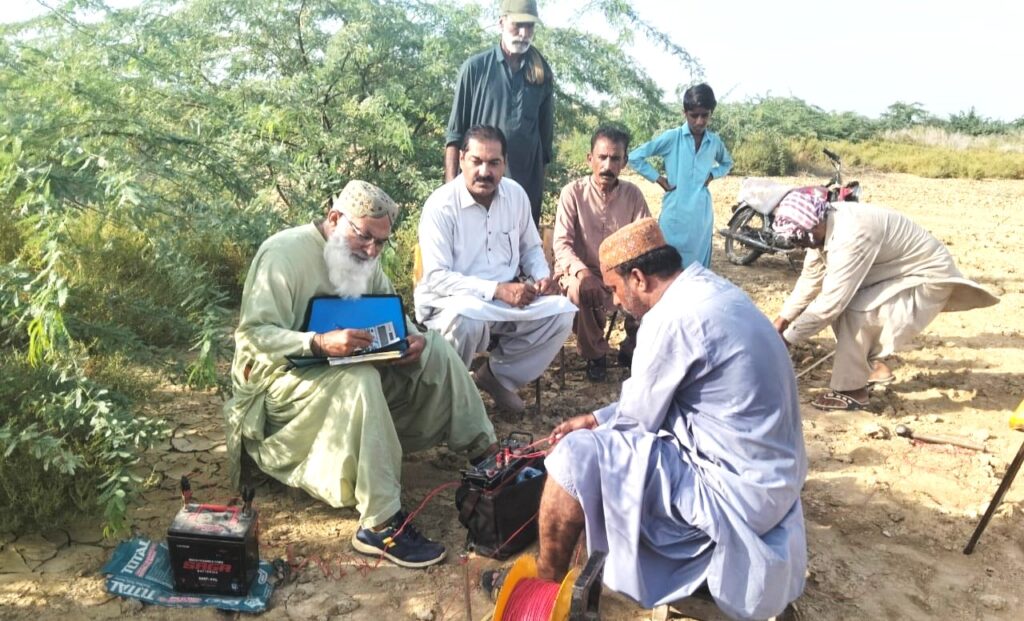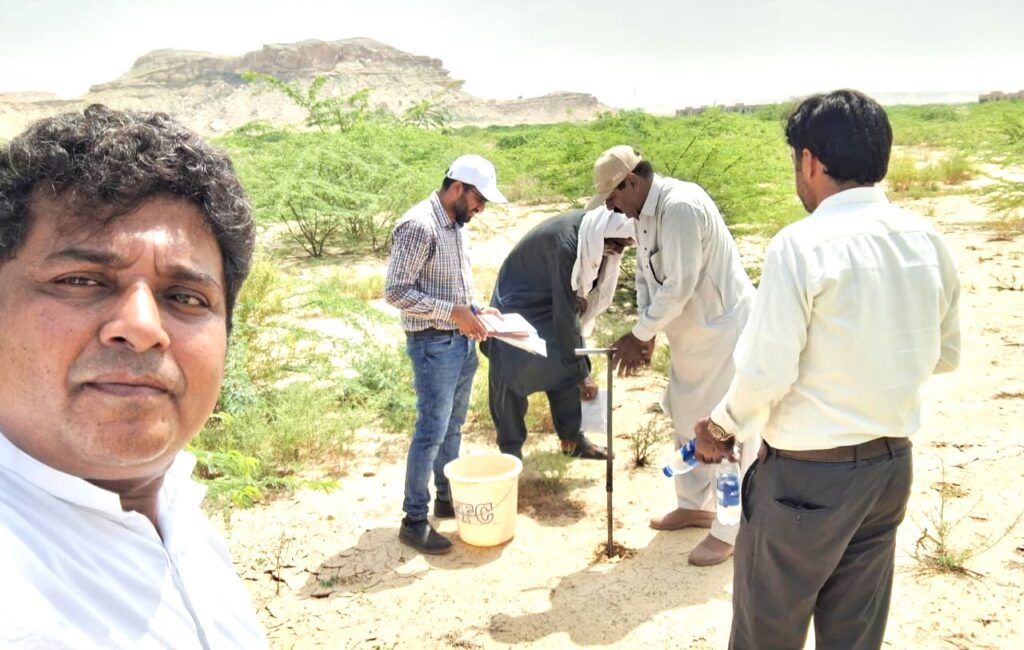
By Imtiaz Hussain
SUKKUR: At the request of Vice Chancellor Prof. Dr. Yousuf Khushk, the Drainage and Reclamation Institute of Pakistan (DRIP) and the Pakistan Council of Research in Water Resources (PCRWR) deployed a technical team to assess groundwater quality at Shah Abdul Latif University’s (SALU) Old Shadi Shaheed land.
The survey used advanced scientific methods to evaluate the potential of underground water in the area. The initiative aims to transform 800 acres of the Old Shadi Shaheed site into fertile fields for date palms, olives, and other crops. A critical first step is to assess the availability and quality of groundwater, particularly for the cultivation of date palms and olives.
The technical team employed Electrical Resistivity Survey (ERS) techniques to examine groundwater up to 1,000 feet below the surface. The SALU delegation was led by Dr. Ameer Ahmed Mallah, Focal Person at the Date Palm Research Institute; Dr. Mumtaz Sand, Head of the Department of Botany; and Prof. Dr. Muzaffar Ali Sirohi. Together with the PCRWR technical team, they conducted ERS probes at seven different sites to evaluate groundwater potential. The results of these initial surveys will guide the next phases of water resource development.

Vice Chancellor Prof. Dr. Khushk expressed optimism about the project. “If Allah wills, we shall discover quality underground water beneath this land at depths of up to 1,000 feet. This discovery has the potential to transform the destiny of the Shadi Shaheed area, making it productive and beneficial for the University and the entire region, Insha’Allah,” he said.
The survey represents the first practical step toward SALU’s broader vision of bringing the Shadi Shaheed land under cultivation, promoting research-driven agriculture, and supporting the local community through sustainable resource management.


